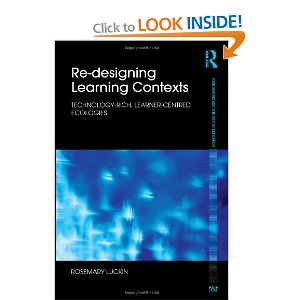 In Chicago today the Obama re-election campaign is set to be the most technically sophisticated ever seen with voters being wooed via Twitter and Facebook, and digital technology along with those who understand how to build and use it set to play a key role in influencing people’s decision making. Across the Atlantic in the UK we face an abundance of choices about how to exploit and use technology, and this poses an enormous challenge for both the current and future education of our children. The realisation that we need people who can produce as well as consume technology has brought a new energy and excitement about computer science and computational thinking, which is being heralded by some as the new literacy of the 21st century. The technology revolution has changed the way many of us work and interact, it has generated new industries and new
In Chicago today the Obama re-election campaign is set to be the most technically sophisticated ever seen with voters being wooed via Twitter and Facebook, and digital technology along with those who understand how to build and use it set to play a key role in influencing people’s decision making. Across the Atlantic in the UK we face an abundance of choices about how to exploit and use technology, and this poses an enormous challenge for both the current and future education of our children. The realisation that we need people who can produce as well as consume technology has brought a new energy and excitement about computer science and computational thinking, which is being heralded by some as the new literacy of the 21st century. The technology revolution has changed the way many of us work and interact, it has generated new industries and new
businesses, and it is natural that we now look to schools, teachers and the education system to help us to understand how we might best prepare our children to live, work and make best use of what computer technology offers.
But how best can we do this?
A mess? 2012 has seen the Secretary of State for Education state that “ICT in schools is a mess” and he has called for a new approach with the hope that technology can be used creatively to develop curricular content: the ‘wiki’ curriculum. What is happening with ICT and computer science education in schools has also been the subject of a 2011 Naace report entitled “The Importance of Technology”, an Ofsted report on ICT in schools, and the importance of providing young people with the skills required by the new workplace is captured by Nesta’s Next Gen report. Clearly there is growing concern and government commitment to change, so what change should we make and why?
Is Computer Science the answer? Computer science is an important element of the debate. The Royal Society’s 2012 ‘Shut down or restart?’ report suggested that a sound understanding of computer science concepts enables people to get the best from the systems they use, and to solve problems when things go wrong. However, computer science is evolving rapidly and its interdisciplinarity means that its evolution touches on many domains and every day life. There are significant challenges for those interested in how best to include it in the curriculum.
Are we sure we know what we want to change? There is already some excellent teaching of ICT and computer science in some schools within the current curriculum and programme of study, so not everything is wrong. Care needs to be taken that the changes we make do lead to a better learning experience at school: an experience that inspires and educates. But, are we clear about what is wrong with computer science and ICT in schools now? Can we be precise about the rationale for what learners at different stages need to be taught? What do we want learners to be able to achieve as a result of studying computer science? Where do ICT and computer science fit in the structure of the school curriculum: media, design, science, cross-curricular?
How can learners tap into the power of computational thinking? The skills of computational thinking can be taught with or without computers, by exploring how processes work, looking for problems in everyday systems, examining patterns in data, and questioning evidence. With a computer, learners can put their computational thinking into action. Could a focus on computational thinking better equip learners to use their understanding effectively and to learn how to apply a range of computing tools? Writing the code that makes a computer behave in a particular way is a creative pursuit: reflecting on what you have constructed is a key part of learning. We may therefore valuably ask: How can we develop good computational thinking for children?
Are we looking in all the right places? Are there less obvious areas of research that might help us answer some of these questions? For example, many people encounter the experience of Flow and are all too familiar with the experience of losing themselves in a task. Might the idea of Flow itself help us understand the learning process in computational thinking and computer science? Researchers in the psychology of programming have spent decades exploring how people learn to code, surely their expertise needs to be drawn into the debate?
There are no short cuts to answering these questions. The process of addressing them requires an interdisciplinary and participatory approach that involves groups from across the sectors that is inclusive in nature and powerful in design. This will require an approach that is new to society, schools, teachers and learners: a process that must be both flexible in its thinking and realistic in its understanding of the role of schools.
Tomorrow we will be having a debate about some of these issues at the London Knowledge Lab and I’ll report back on how that goes.
Read our briefing paper (from which the above text is taken)
Follow the event through illuminate – go to http://link.lkl.ac.uk/e-meeting for access to the live stream.





